
These study results suggest that osimertinib as adjuvant therapy is an effective treatment strategy for patients with stage IB to IIIA EGFR-positive non-small cell lung cancer following complete tumor resection.

Your AI-Trained Oncology Knowledge Connection!


These study results suggest that osimertinib as adjuvant therapy is an effective treatment strategy for patients with stage IB to IIIA EGFR-positive non-small cell lung cancer following complete tumor resection.

A study presented at The Society for Immunotherapy of Cancer’s (SITC) 35th Anniversary Annual Meeting suggested that ipilimumab (Yervoy) plus nivolumab (Opdivo) for patients with metastatic or unresectable angiosarcoma was well-tolerated.
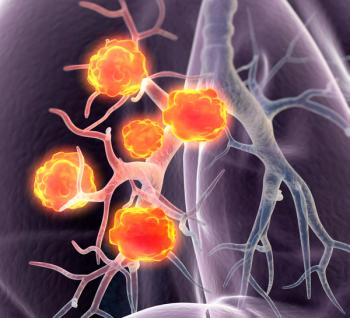
The SU2C–LUNGevity Foundation–American Lung Association Lung Cancer Interception Dream Team have developed laboratory models to understand the inflammatory process in the lung’s bronchial cells, and how that relates to early lung cancer development.

A study published in American Journal of Preventative Medicine found that expansion of the Affordable Care Act resulted in an increase in early-stage cancer diagnoses and a decrease in late-stage cancer rates for patients.

The FDA has accepted and granted priority review to the biologics license application (BLA) for loncastuximab tesirine (Lonca) for the treatment of relapsed or refractory diffuse large B-cell lymphoma.

The FDA approved a 1500 mg fixed dose of durvalumab (Imfinzi) administered every 4 weeks for the treatment of unresectable stage III non-small cell lung cancer after chemoradiation therapy and previously treated advanced bladder cancer.
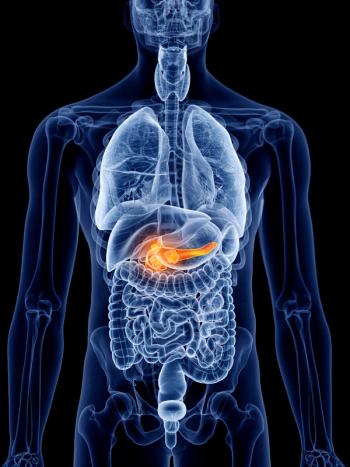
Study results suggested that maintenance olaparib (Lynparza) is potentially cost-effective compared with placebo for patients with metastatic pancreatic cancer and a germline BRCA mutation.

According to a survey, nearly 1 in 5 patients with cancer reported that the pandemic would make them less likely to enroll in a clinical trial.

A study published in The BMJ found that even a slight 4-week treatment delay is associated with increased mortality across a number of indications for 7 cancer types.

“In the current era of effective multimodality therapy for breast cancer, the need for [axillary lymph node dissection] for patients with axillary lymph node metastases must be re-evaluated, even for patients with clinically positive nodal disease,” the study authors wrote.

This study found that the increased risk of ovarian cancer in women treated with assisted reproductive technology compared with the general population can likely be explained by nulliparity instead.

The FDA granted fast track designation to rilzabrutinib for the treatment of patients with immune thrombocytopenia.

The FDA lifted the clinical hold on the phase 1 MELANI-01 trial, which is evaluating UCARTCS1 for the treatment of patients with relapsed or refractory multiple myeloma.

The clinical trial is designed to evaluate the efficacy and safety of tislelizumab compared to docetaxel in the second- or third-line setting in patients with locally advanced or metastatic non-small cell lung cancer who have progressed on a prior platinum-based chemotherapy.

Ahlstrom explained the necessity of offering patients with cancer telehealth opportunities and what patients with cancer will lose should telehealth waivers expire.

The results demonstrated preliminary evidence of monotherapy activity, encouraging efficacy in combination with the PD-1 checkpoint inhibitor pembrolizumab (Keytruda), and biomarker data supporting FLX475’s mechanism of action.
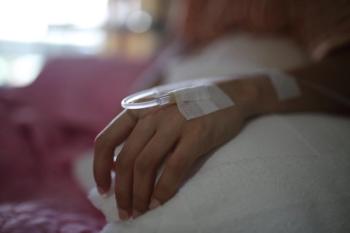
Plinabulin plus pegfilgrastim met the primary end point of the phase 3 PROTECTIVE-2 registrational study to prevent grade 4 neutropenia.

The priority review of the biologics license application for lisocabtagene maraleucel (liso-cel) for the treatment of adults with relapsed or refractory large B-cell lymphoma after at least 2 prior therapies will not be completed by the prescription drug user fee act date.

This study aimed to evaluate the prognostic impact of extrapulmonary cancers in patients with IPF, as most studies have previously focused on the effect of lung cancer on this patient population.

Study investigators indicated that these results call for the need to revise skin cancer health policies to be able to handle the increasing burden of keratinocyte carcinoma management.
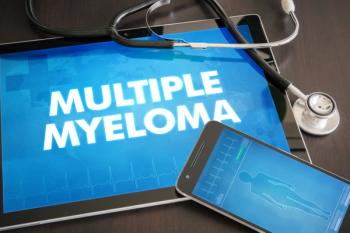
“The most important takeaway here is that bridging radiation doesn’t appear to increase the risk of [cytokine release syndrome; CRS] or neurotoxicity,” said lead study author Shwetha Manjunath, MD.

The FDA approved the use of PD-L1 IHC 22C3 pharmDx as an aid in identifying patients with triple-negative breast cancer who may be appropriate for treatment with pembrolizumab (Keytruda).
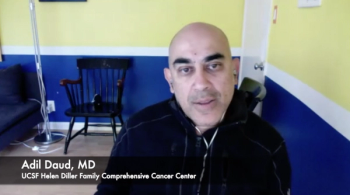
Adil Daud, MD, spoke about the emergence of next-generation sequencing and the importance of testing patients with melanoma for BRAF mutations.

Researchers suggested that the tumors of patients with stage I and II early-stage non-small cell lung cancer demonstrate the highest tumor mutational burden and most often display the mutational signature associated with tobacco smoking.
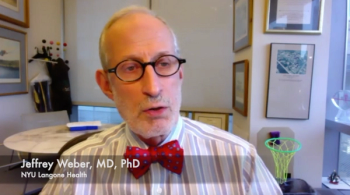
Jeffrey Weber, MD, PhD, discusses the unmet needs professionals take into consideration when deciding treatment options for patients with melanoma.

This study found that found that mini-strokes and heart attacks were significantly less common among patients with locally advanced non-small cell lung cancer who underwent proton therapy versus conventional photon-based radiation therapy.
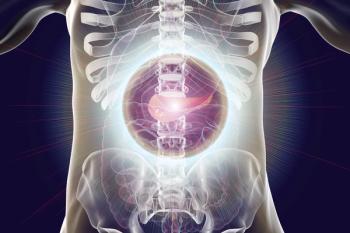
Research published by Galvin, et al. in the journal ONCOLOGY® demonstrated the necessity to understand why eligible patients with pancreatic adenocarcinoma elect not to participate in early-phase clinical trials.

The FDA granted accelerated approval to pembrolizumab (Keytruda) in combination with chemotherapy for the treatment of patients with locally recurrent unresectable or metastatic triple-negative breast cancer whose tumors express PD-L1 as determined by an FDA approved test.
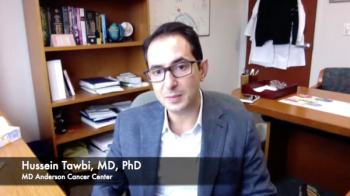
Data from the COMBI-AD Trial evaluating dabrafenib and trametinib to treat melanoma was analyzed by Hussein Tawbi, MD, PhD, of The University of Texas MD Anderson Cancer Center.

CancerNetwork® will be hosting a tweet chat this Monday, November 16th, at 12 PM EST, that will feature real patient cases regarding the use of integrative oncology.